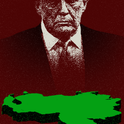Kabul Bank, the largest financial institution in Afghanistan, had been plunged into in chaos by negative rumours about its investments, prompting an ongoing run on the bank by customers anxious to get their money out. The Afghan government has been forced to take money out of its account at the US Federal Reserve to compensate for the huge withdrawals, and is reported to be on the verge of organising a bailout. Although the US has pledged that American taxpayer funds will not be used to rescue the troubled institution, many observers believe it's only a matter of time before some sort of intervention takes place. It now looks possible that this assistance will come in the form of a guarantee or a rescue through a third party, such as the IMF.
This creates a dilemma. A strongly functioning economy is clearly vital if the counterinsurgency strategy is going to succeed, both to strengthen support for the central government and to lure people away from drug production. Letting Kabul Bank collapse would also be an indication that the US does not believe that Afghanistan has a long-term future, especially given that Obama recently refused to abandon his promise to begin withdrawing troops next year. There is also the worrying possibility that countries such as China, Russia—or even Iran—could offer to help, shoring up Kabul Bank to strengthen their influence over Afghanistan’s economy.
However, the fact that Kabul Bank is owned by the brother of the Afghan president raises serious questions. Indeed, it has even been alleged that the Afghan banking system is already used to finance the Taliban. As with any assistance to private companies, there is also the question of moral hazard. Of course, it could be argued that the waves of bailouts in America, Britain and the rest of the world have rendered such objections worthless, and even somewhat hypocritical. However, there is still the risk that financial intervention could lead to further problems down the line. Enabling the Afghan elite to walk away with their equity and funds intact would enhance the perception that the international community is not serious about tackling corruption.
The problems inherent in a bailout mean that instead of directly supporting individual banks, any guarantees should be strictly limited to small-scale depositors, and the urge to compensate (or underwrite) shareholders, bondholders or large scale depositors must be resisted. Instead, international institutions should be ready to provide alternative lines of temporary credit for non-financial Afghan firms, and payroll processing services for the police and security services, if necessary. At the same time, it needs to be made clear to Karzai that even this limited assistance will depend on Kabul Bank granting international law-enforcement agencies access to bank records, enabling them to see if the institutions are being used to launder funds for criminals and terrorists.
The moral necessity of the fight against the Taliban makes some intervention likely. However, blanket guarantees risk making the situation even worse by rewarding corrupt officials. In a worst case scenario, a bailout could end up benefiting those involved in criminal, or even terrorist, activities. Any assistance must be conditional on transparency, and strictly limited to average Afghans rather than international bondholders. Under no circumstances should support for Kabul Bank, or similar institutions, lead to a reduction in either funding for Nato’s counterinsurgency operations or development aid to Afghanistan.
Kabul Bank crisis: the bailout dilemma
September 06, 2010












